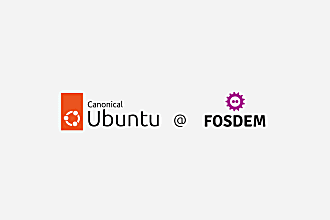Anthony Dillon
on 8 August 2016
Last week the developers in the web team swapped the office for the lobby of the hotel across the street. The day was geared up to allow us to leave our daily tasks in the office and think of ideas that we would like to work on.
The morning started with coffee and sitting in sofas brainstorming ideas. We collected a list of ideas from each person would like to work on. The ideas ranged from IRC bots to a performance audit of a few of our sites.
Choosing ideas
We wrote all the ideas on post it notes and lay them out on the table. Then each of us chose the idea we were most interested in working on by putting our hand on it. I worked out an almost perfect split of two people per idea, so we broke up into our teams and got to work.
Here are the things we worked on during this “hack day”.
IRC bots
These are bots that can listen to an action and report it to our IRC channel. For example, the creator of a pull request wouldn’t have to paste a link to their PR into our channel to be picked up for review.
This task was picked up by Karl and Will, who started by setting up a Hubot on Heroku. They attached a webhook to all projects under the ubuntudesign to listen for pull requests and report this in the web team channel.
This bot can be used for many other things like reporting deployments, CI failures, etc. We also discussed a method of subscribing to the notifications you are interested in, instead of the whole team being notified about everything.
Asset manager search improvements
Our asset manager and server acts as an internal asset storage. By storing an asset here we get a link to it which can be used by any website. As there are many assets stored in the asset manager we usually need to search existing assets to see if one already exists before making a new one.
Graham and myself picked this task and started by working out how to setup both the manager and server locally.
Previously the search would return results that contained either of a two-word query, but now the result has to contain all search terms to return.
We added our Vanilla framework to the front end, as it is obviously good to use our framework for all internal and external projects.
We have also implemented filtering results by file type, which makes it easy to go through what can sometimes be dozens of search results.
GitHub CMS
GitHub CMS is a nicer and more restricted interface that the marketing team can use to edit the GitHub repository containing page content for example, www.ubuntu.com.
Rich and Robin picked this task and began work on it straight away, by discussing the best approach and list of possible features.
Even though Robin was also helping out with. setting up the asset manager and server locally for Graham and me, he still managed to investigate the best Python framework to use and selected one. Rich on the other hand went ahead with the front end and developed a bunch of page templates using the new MAAS GUI Vanilla theme.
Commit linting
Commit linting is a service that gives a committer to a project a nice step by step wizard to build a high quality commit message.
Barry picked up this task and got the service up and running, and working, but hit a blocker at the point of choosing between different methods of committing. For instance, Tower would bypass this step and also we do not necessarily want to dictate to contributors which way they should commit code. This is something we will leave as an investigation for the time being.
Conclusion
Our hack day went well, in fact better than I imagined it would. We all had fun, got to work on things we found important but struggle to get prioritised in our day to day. It gave the developers a feeling of achievement and the buzz of landing and releasing something at the end of the day.
We will be attempting to do a hack day once every month or so, so watch this space!



